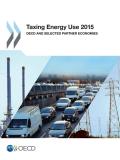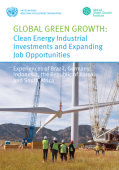Energy efficiency has a plethora of benefits on the individual, organisational, and social levels. However, there is still a gap between knowledge and implementation. While market failure serves as an important barrier to energy efficiency uptake, so do the characteristics of human behaviour. Literature on human behaviour reveals many entry points for the inclusion of ‘behavioural insights’ in the design of energy efficiency programmes.
Drawing from case studies on small and large industry in Colombia, India, South Africa, and Uganda, this report aims to provide practitioners with illustrations of how insights into human behaviour can be effectively integrated into energy efficiency programmes. The incorporation of behavioural insights should consider four aspects: the cultural context of the target group, windows of opportunity for the intervention, drivers and motivations, and the overall fit of the intervention with the package of measures.
This report serves as a starting point to address the calls from Rio+20 and the United Nations Environment Programme Governing Council to share the South’s various experiences and national-level initiatives for transitioning to sustainable and socially inclusive economies. Four unique national initiatives – all taking place in countries in the South, and at different stages of implementation - are highlighted: Ecological Civilization in China, Sufficiency Economy in Thailand, Green Economy in South Africa, and Living Well in Bolivia.
By emphasizing their common economic, environmental and social aspirations, as well as challenges and available resources, this report aims to benefit countries by sharing experiences that they may find relevant to their own particular challenges. In addition to providing concrete examples, such exchanges can empower countries to share and learn from home-grown responses to sustainable development challenges. In this report, sub-sections describing four national sustainable development approaches are drawn from contributions from the four project countries themselves.
The main focus of this paper is on the assessment of the challenges and trade-offs faced by the three major national development banks (NDBs) in emerging economies in their efforts to (1) reach the goals set by their governments, (2) obtain the resources needed to function at a meaningful scale, and (3) operate within their unique economic and political contexts.
Followed by the first introductory section, the second section provides the overview of three NDBs. And the next section is primarily focused on the viability of the three NDBs to supply a significant share of financing for infrastructure investments in developing and emerging economies, supporting economic growth and improved living standards. The comparison of the CDB, DBSA, and BNDES indicates that NDBs have a significant role to play in this task and gain numerous important advantages. However, it is also clear that their role is inherently limited in nature. The final section of this paper draws some tentative conclusions and lessons regarding the role of NDBs in providing infrastructure finance.

Energy is a critical input into the production and consumption patterns that support economic and social wellbeing. However, many forms of energy use contribute to the environmental and climate challenges societies face today. Taxation is a key tool by which governments can influence energy use to contain its environmental impacts. This report provides a systematic analysis of the structure and level of energy taxes in OECD and selected other countries; together, they cover 80% of global energy use.
This report builds on the 2013 edition of Taxing Energy Use, expanding the geographic coverage of the 2013 data set to include Argentina, Brazil, China, India, Indonesia, Russia and South Africa. The report describes energy use, taxation and pricing in these countries and presents detailed graphical profiles of the structure of energy use and taxation for each.

This report examines the specific industrial policy measures promoting a low-carbon transition in five focus countries, specifically Brazil, Germany, Indonesia, the Republic of Korea and South Africa, through a compilation of expert review studies. It shows that across all levels of development, major attention is being paid to the threats of climate change and opportunities of pursuing a low-carbon development path, and dedicated efforts are presented to operate efficient industrial policies to enhance green growth. However, it is clear that the major focus in developing countries will need to be on green investments and on creating an enabling environment for such investments if the global economy is to effectively combat climate change.
This report is the second volume in a two volume set. Volume I of the report, providing overall findings from the project, can be accessed here.
